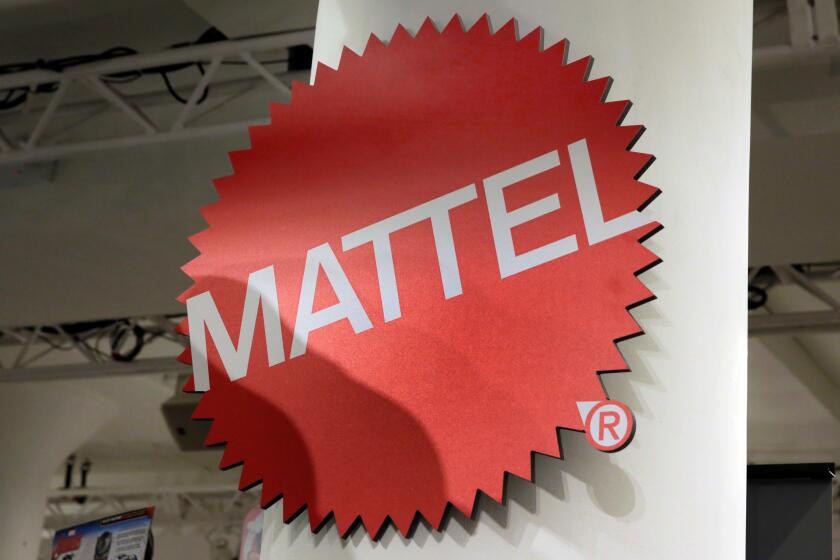Buyout firms are selling -- a new image
The buyout kings who gathered in a 42nd-floor conference room in Manhattan last year knew they had an image problem.
There was Henry Kravis, the legendary investor whose takeover of RJR Nabisco was immortalized in the movie “Barbarians at the Gate.” Next to him sat Stephen Schwarzman, whose lavish 60th-birthday bash featuring Rod Stewart and Patti LaBelle would soon make headlines around the globe.
David Rubenstein, co-founder of Washington’s politically connected Carlyle Group, and David Bonderman, the Texas-based magnate who once led a takeover of Continental Airlines, were hooked up by phone.
As heads of private equity firms, the four men specialize in buying troubled companies, fixing their bottom lines and reselling them for big profits. But a growing chorus of critics was painting them as financial predators whose primary talent lay in slashing jobs and chopping up companies.
Meeting at Kohlberg Kravis Roberts & Co.’s New York headquarters, the group laid plans to counter its adversaries with a message of its own: that takeover firms help society by saving jobs and strengthening companies in distress. Thus was born the industry’s first trade association, the Private Equity Council.
“Private equity has never been very good at explaining what it does,” Rubenstein declared in a recent speech. “We have to retool how we explain ourselves.”
Yet for all the group’s financial firepower, the joint effort is off to a rocky start.
This month House members voted to more than double the tax rate charged many investment managers, a shift that would cost masters of the buyout universe millions of dollars if it ever became law.
“They’re in for a long, hard fight,” said Sam Geduldig, a lobbyist for financial companies and a former Republican House staffer.
Private equity firms have been around for decades, but they’ve begun to attract more attention because of increasingly bigger deals and high-profile acquisitions of prominent companies including Burger King, Hertz, Dunkin’ Donuts and Toys R Us.
Their activities have also drawn attention outside the U.S. In 2005, the leader of Germany’s Social Democratic Party compared foreign investment firms to “a swarm of locusts,” reminding some of Nazi-era imagery used against Jews. A British union official described the industry as “a global vacuum cleaner.” Japan, China and South Korea imposed tax hikes on foreign investment firms.
For a publicity-shy industry, the overseas backlash was a wake-up call. When Blackstone Group President Tony James pitched Rubenstein on the idea of a trade group, the Carlyle executive agreed, and leaders of the private equity firms were soon sitting around the conference table at KKR.
“It was increasingly clear to the founders of these companies that it was just a matter of time” before harsher scrutiny emerged in the U.S., said Harry W. Clark, a veteran public policy consultant who was asked by buyout leaders to draw up the initial plans.
To head the Private Equity Council, Clark recruited Douglas Lowenstein, a onetime newspaper reporter and congressional aide who founded a trade association in 1994 for the video game industry, which has had image troubles of its own because of the graphic violence depicted in many of its products.
Lowenstein, nephew of the late social activist Allard K. Lowenstein, said private equity helped foster economic growth, which was “an important part of creating a more just society.”
Asked if his current role dovetailed with the social activism of his uncle, he replied: “It’s not whether it’s consistent with my uncle’s personal beliefs. It’s about my own view of the world. . . . I’m guided by my own principles and values.”
The Private Equity Council opened its doors Feb. 22 with 11 of the world’s biggest buyout funds as charter members and a professional staff of just one, reflecting the “lean and mean” ethos of private equity firms. Lowenstein has since added a lobbyist and a communications strategist.
But any plan to mount a gradual effort to educate the political world was quickly overtaken by crisis, as private equity soon became emblematic of spectacular wealth.
In March, lawmakers seized on news reports about the riches of leading buyout managers, such as Blackstone Group’s Schwarzman, whose fortune was estimated at $7.5 billion when the company went public in June.
Right before Blackstone’s initial public offering, Senate Finance Committee Chairman Max Baucus (D-Mont.) and the panel’s ranking Republican, Charles E. Grassley of Iowa, proposed what became known as “the Blackstone bill,” which would hike taxes paid by investment firms that go public.
On June 22, the day of the offering, Rep. Sander M. Levin (D-Mich.) broadened the battle. Levin, joined by several House Democrats, urged that managers of private investment partnerships pay ordinary tax rates on much more of their income, rather than a cheaper capital-gains rate.
For many, that would mean paying 35% of their earnings on taxes, instead of 15%.
“Suddenly, we were in the mother of all tax fights,” Lowenstein recalled in an interview.
At the center of the storm, the fledgling Private Equity Council tried to coordinate the antitax battle, hosting a conference call with the growing team of lobbyists hired by member firms, including former members of Congress, onetime officials in past administrations and former aides to congressional leaders.
But not all went smoothly.
In August, Blackstone raised eyebrows on Capitol Hill when it suggested in a letter to Sen. John F. Kerry (D-Mass.) that Baucus and Grassley were quicker to protect tax provisions for home-state ethanol interests than for investors based on the coasts, calling it a “glaring inconsistency.”
Said Mark Heesen, president of the National Venture Capital Assn., “The private equity folks come in with a cavalier manner and tell members what they should be doing and walk out the door. That’s not the way you build relationships in Washington.”
Blackstone officials declined to be interviewed for this story.
Lowenstein and others contended that buyout firms should not be singled out for legally complying with the tax code and that their efforts to increase the value of companies fit the spirit of capital gains.
The effort went beyond talk. Investors wrote a lot of checks -- more than $2.5 million to Congress in the current election cycle. Though such numbers are not enormous by Washington standards, they represented a sharp increase. Analysts also noted the strong partisan tilt, with $8 of every $10 going to Democrats.
“This is a cost of doing business,” said Sheila Krumholz, executive director of the Center for Responsive Politics. “This is not a significant sum for this industry.”
But the payoff is not yet obvious.
On Nov. 9, House Democrats voted to include the tax increase in a larger tax bill. Only eight Democrats joined a bloc of Republicans in opposition.
The issue has moved to the Senate, where influential Democrats are caught between a populist push to raise the investors’ taxes and a reluctance to anger their private equity contributors. “Nothing is on or off the table,” said Jim Manley, a spokesman for Senate Majority Leader Harry Reid (D-Nev.), using words that reflect the delicacy of the matter.
Beyond that, President Bush has promised to veto such a measure if it reaches his desk.
However the tax debate plays out in the short run, the wealthy investors could face growing political and regulatory pressures over time.
The Internal Revenue Service recently said it was going to review tax returns of partners in private equity and hedge funds to make sure they fully complied with the law. On top of that, the Securities and Exchange Commission is looking into insider trading by market professionals, an inquiry that SEC Chairman Christopher Cox has hinted includes private equity.
A Democratic push to raise taxes on wealthy investors as a way to relieve the middle class is also likely to continue next year, and the possible election of a Democratic president would increase the odds of passage in the future.
All of which will probably mean more cooperation among buyout industry leaders, said Colin C. Blaydon, director of Dartmouth College’s Center for Private Equity and Entrepreneurship.
“It’s the first time we’ve seen anything like it,” Blaydon said of the buyout elite’s fledgling effort to work together in the nation’s capital.
“Their world was New York and London, not Washington, D.C.,” he said. “These were guys who competed with each other. They didn’t tend to collaborate.”
--
More to Read
Inside the business of entertainment
The Wide Shot brings you news, analysis and insights on everything from streaming wars to production — and what it all means for the future.
You may occasionally receive promotional content from the Los Angeles Times.






